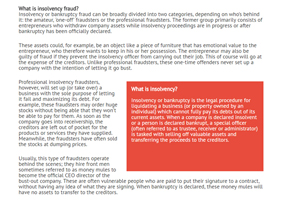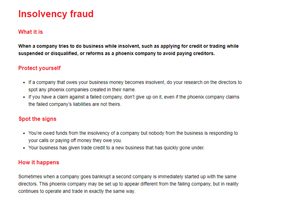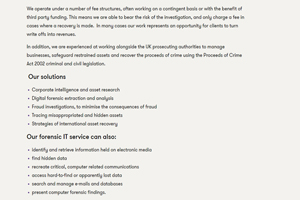Insolvency Scams
Individuals or business houses that receive emails from unknown companies requesting urgent payments should exercise maximum caution when responding. Recipients of such emails should either delete them immediately or avoid replying to the scammers. The types of business firms that commonly fall into these traps include credit card companies, hire purchase companies, and personal loan providers.
Insolvency scams are fraudulent schemes that exploit individuals or businesses experiencing financial distress by offering fake debt relief or financial assistance. These scams often involve false promises of eliminating or significantly reducing debts, preying on the vulnerabilities of those facing economic hardship. Fraudsters typically demand upfront fees, claiming they are required to secure debt relief, and frequently use high-pressure tactics to push victims into making quick decisions or payments. In some cases, scammers impersonate legitimate debt counseling or insolvency services, adding another layer of deception. To protect against insolvency scams, individuals and businesses should exercise caution, thoroughly research any organization offering financial assistance, be suspicious of upfront fees, and seek guidance from reputable financial professionals or organizations with a proven record of ethical practices.
Credit card companies or financiers often lend money to newly established companies when they are satisfied with their credentials. However, when scammers receive the loan check from these credit card companies, they deposit the money and quickly siphon it off once it is credited to their account. Credit card companies should exercise maximum caution when providing loans to newly opened businesses. They must conduct thorough background verification checks on the directors, general managers, and other key personnel involved. If any malpractice is detected, they can immediately halt the release of the loan check.
Companies that are offering credit card or personal loan should follow the below mentioned guidelines before taking positive stand:
- Verify the authenticity and reputation of companies requesting large loans.
- Perform a detailed background check of the company and its high-ranking employees.
- Analyze their financial records thoroughly to check for any payment defaults.
- Be fully convinced of the honesty and integrity of the business requesting the funds.
-
If it is discovered that the company requesting the loan is insolvent, the matter should be escalated to the police or cybercrime authorities.








